Tackling AMR together: Genomics, training and community action
Have you ever considered how genomics could help you respond more effectively to antimicrobial resistance (AMR)?
Across the world, scientists and public health professionals are exploring how genomics can offer timely, context-specific insights into the spread and evolution of antimicrobial resistance (AMR). However, understanding when and how to use genomics is just as important as having access to the technology itself.
To meet the World Health Organization’s (WHO) goal of reducing the estimated 4.95 million deaths annually associated with bacterial AMR by 10% by 2030, equitable access to critical tools and the knowledge to use them effectively is essential. Genomics is one of those tools, and building the skills, networks, and infrastructure to support its use is central to our learning and training approach.
At Wellcome Connecting Science, we are working with partners to bridge existing skills and knowledge gaps, creating opportunities for research and healthcare professionals (at all levels) to build the skills and confidence needed to integrate genomics into AMR surveillance, decision-making and public health response.
Training designed for impact
Since 2018, we have been working with scientists from the Wellcome Sanger Institute, UK. Kenya Medical Research Institute (KEMRI), National Institute of Communicable Diseases in South Africa (NICD), Oxford University Clinical Research Unit, Vietnam (OUCRU), and Mahidol University, Thailand, to deliver training programmes dedicated to using genomics for AMR surveillance and public health action.
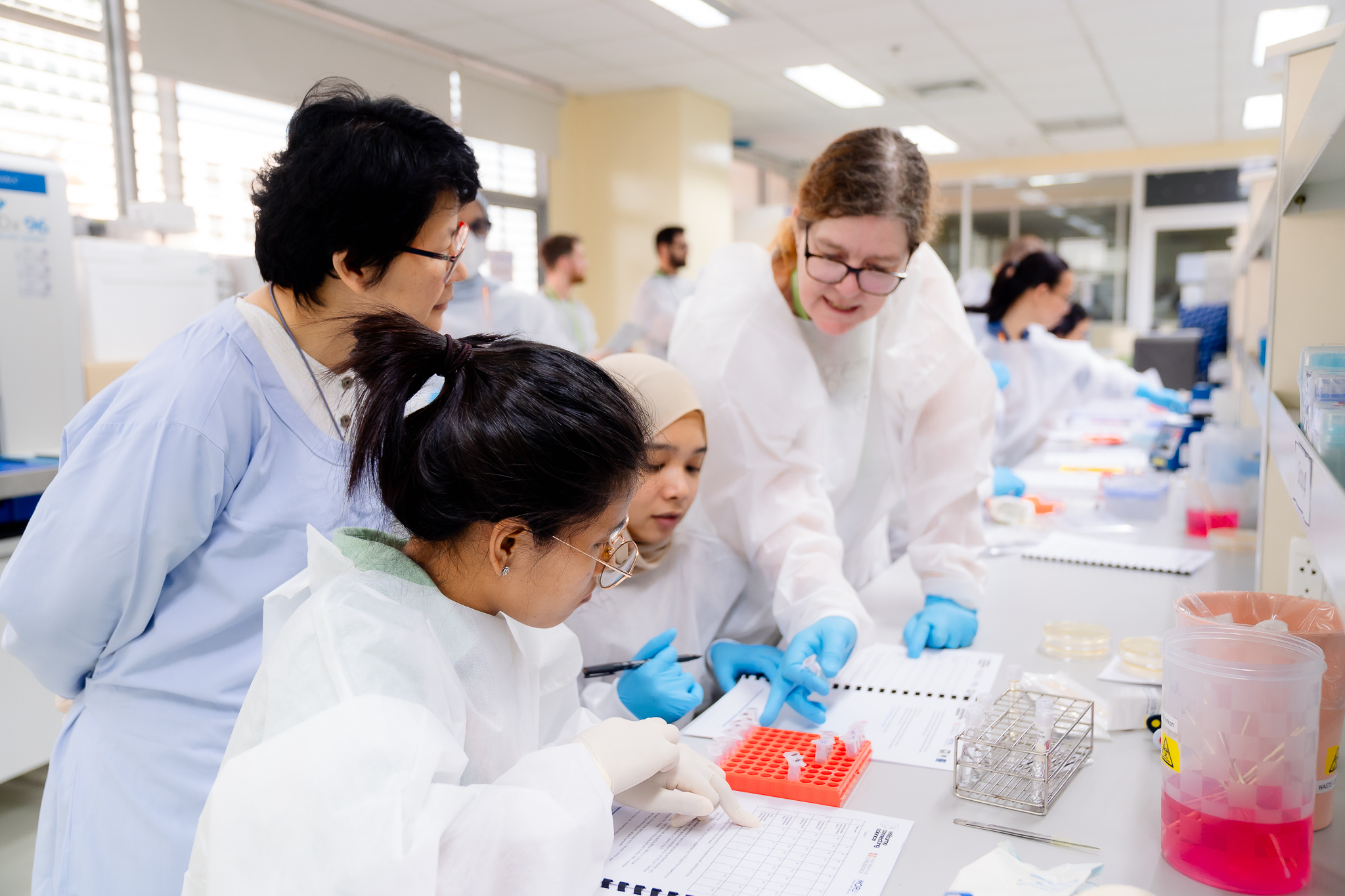
Each course provides hands-on, practical training in sequencing technologies, AMR susceptibility testing, and genomic data analysis, all tailored to the diagnostic systems, surveillance priorities, and public health needs of the regions where they are delivered. From curriculum design to facilitation, these programmes are co-developed and delivered with microbial genomics experts, many of whom are working tirelessly to embed genomics into their countries’ AMR strategies, surveillance pipelines, and broader public health systems.
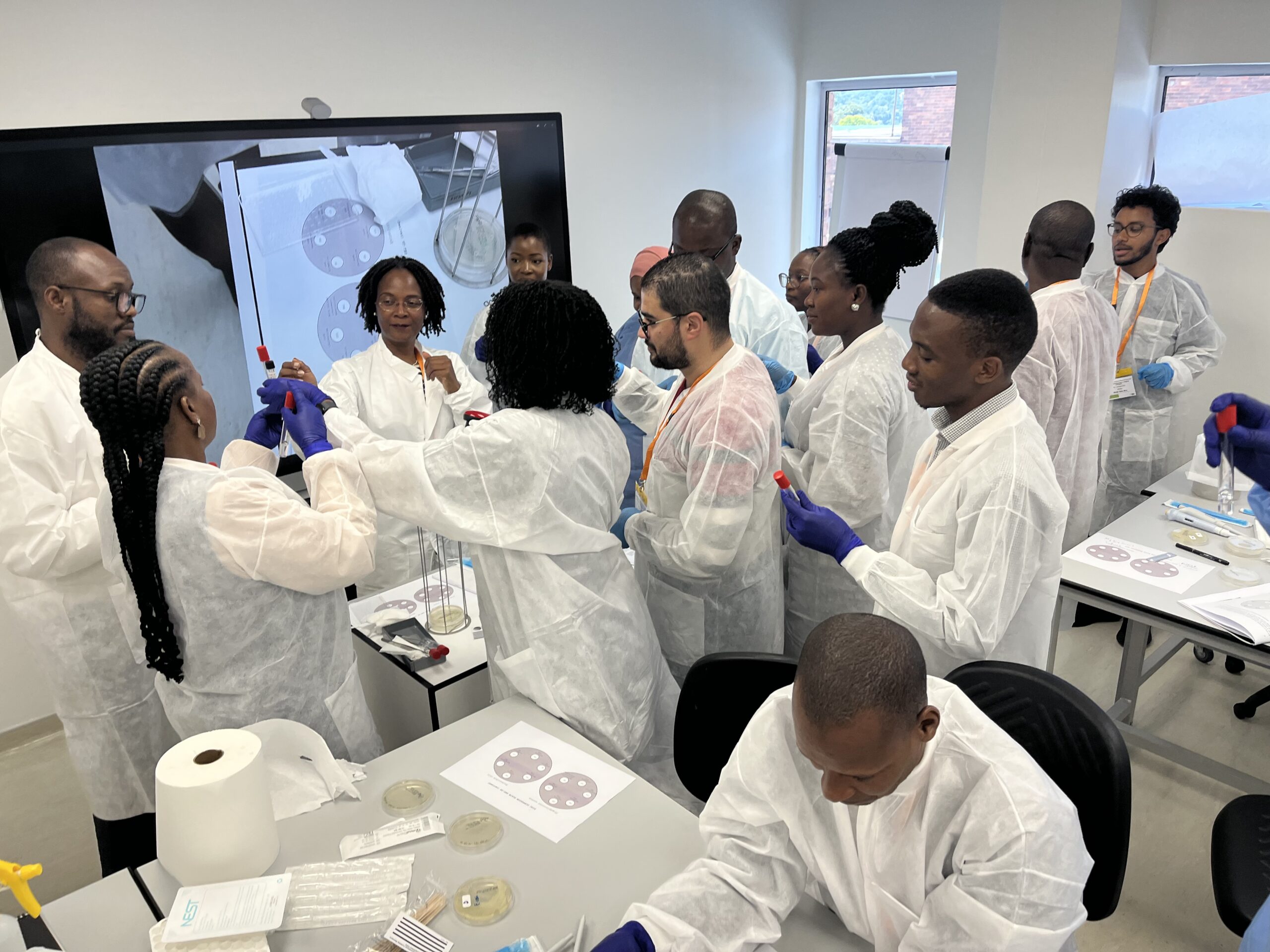
Courses are supported by multilingual experts, with real-world case scenarios tailored to the local and regional needs.
Our collaborative model ensures that training is both relevant and responsive to trainee needs and encourages peer exchange. This supports the development of skilled professionals and networks that are essential for expanding the role of genomics in AMR research and applications.
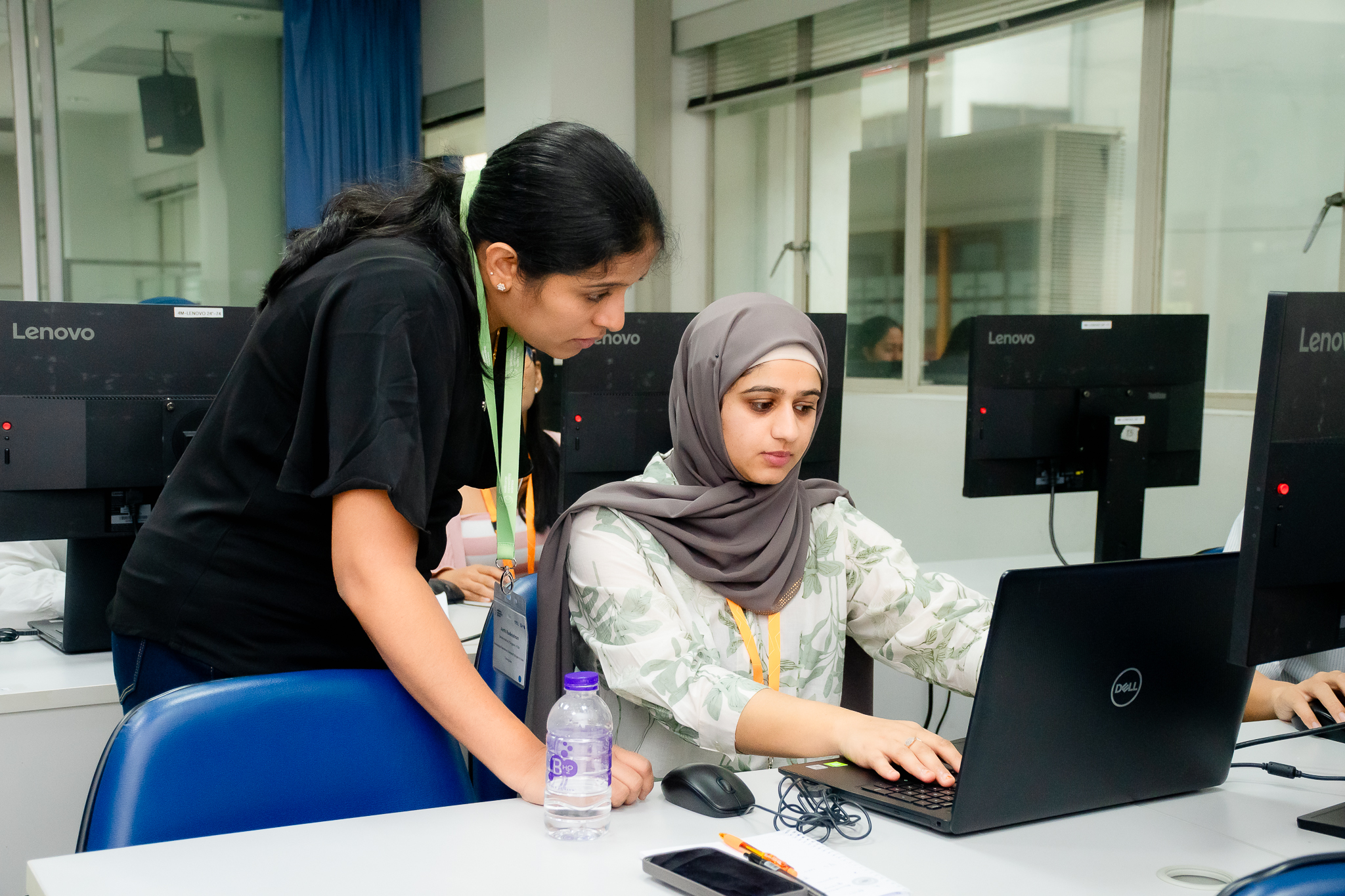
But we don’t stop at the end of the course. We encourage participants to join broader regional communities, extending the learning beyond the course, fostering sustained engagement and collaboration. These professional networks provide vital spaces for continued peer support, troubleshooting, and the sharing of practical experiences, ensuring that training transitions into long term impact.
Genomics is critical to tackling AMR, and it’s through shared learning, empowered communities, and collaboration that we turn these tools and technologies into action and impact.
Alice Matimba, Head of Training and Capacity Building, Wellcome Connecting Science, UK
Communities of practice in action
The SAGESA African AMR Genomics Network was established to connect and empower researchers, clinicians, and public health professionals committed to strengthening the use of genomics in AMR surveillance across Africa. Since its inception, SAGESA has played a central role in supporting continuous learning, peer collaboration, and community-driven problem-solving.
In 2024, members of the network co-organised our first AMR Symposium, which brought together a diverse group of voices to explore the application of genomics in AMR through a One Health lens. The programme featured discussions on policy development, data governance, diagnostic innovation, and implementation science, reflecting the wide-ranging expertise and perspectives within the network.
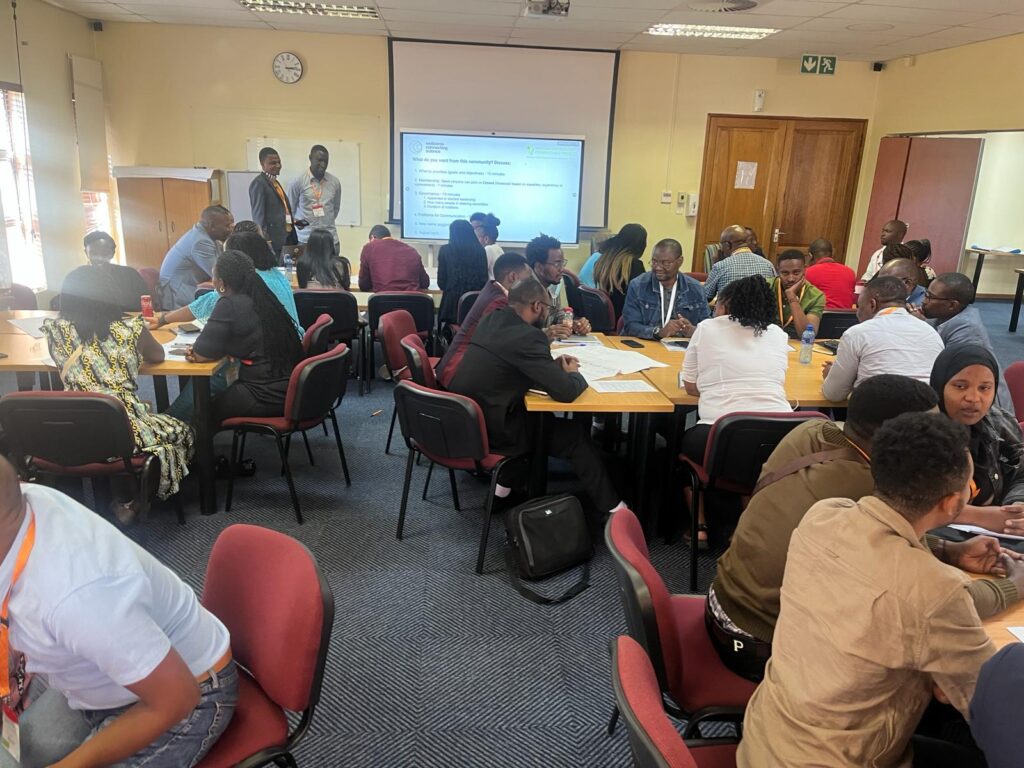
The community continues to grow through an evolving series of webinars and virtual workshops that provide space for both technical learning and professional development. A recent session attended by over 100 participants, explored the use of evaluation tools and the emerging role of AI in analysing AMR genomics data. Future webinars will explore themes such as designing impactful AMR research, applying genomics in clinical practice, and understanding the intersection between AMR and host–microbiome interactions, opening up new cross-disciplinary conversations. These sessions are designed to be highly interactive and are often co-led by members of the SAGESA community.
We are now building momentum toward the 2026 AMR Symposium, which will offer an even more immersive environment for knowledge exchange, innovation, and peer learning.
Genomics is a team science — no single mind can unlock its full potential alone. Using genomics to tackle antimicrobial resistance demands deep collaboration across disciplines, sectors, and borders. Meaningful impact comes when we share data, expertise, and vision to strengthen global health together, and SAGESA provides a community for that.
Isabela Malta, Assistant Courses Manager, Wellcome Connecting Science, UK
We invite you to get involved
Join the SAGESA Network to stay connected with like-minded peers, access practical learning opportunities, and contribute to shaping the future of AMR genomics in Africa.
We are also welcoming expressions of interest to join the SAGESA Board an exciting opportunity to help guide the next phase of growth. Click here to find out more about the roles available, and to complete your application.
Learning that meets you where you are
Whether you are just beginning your journey with genomics or looking to expand your expertise in AMR surveillance, we offer learning opportunities designed to support you wherever you are in your career, geography, or access to resources.
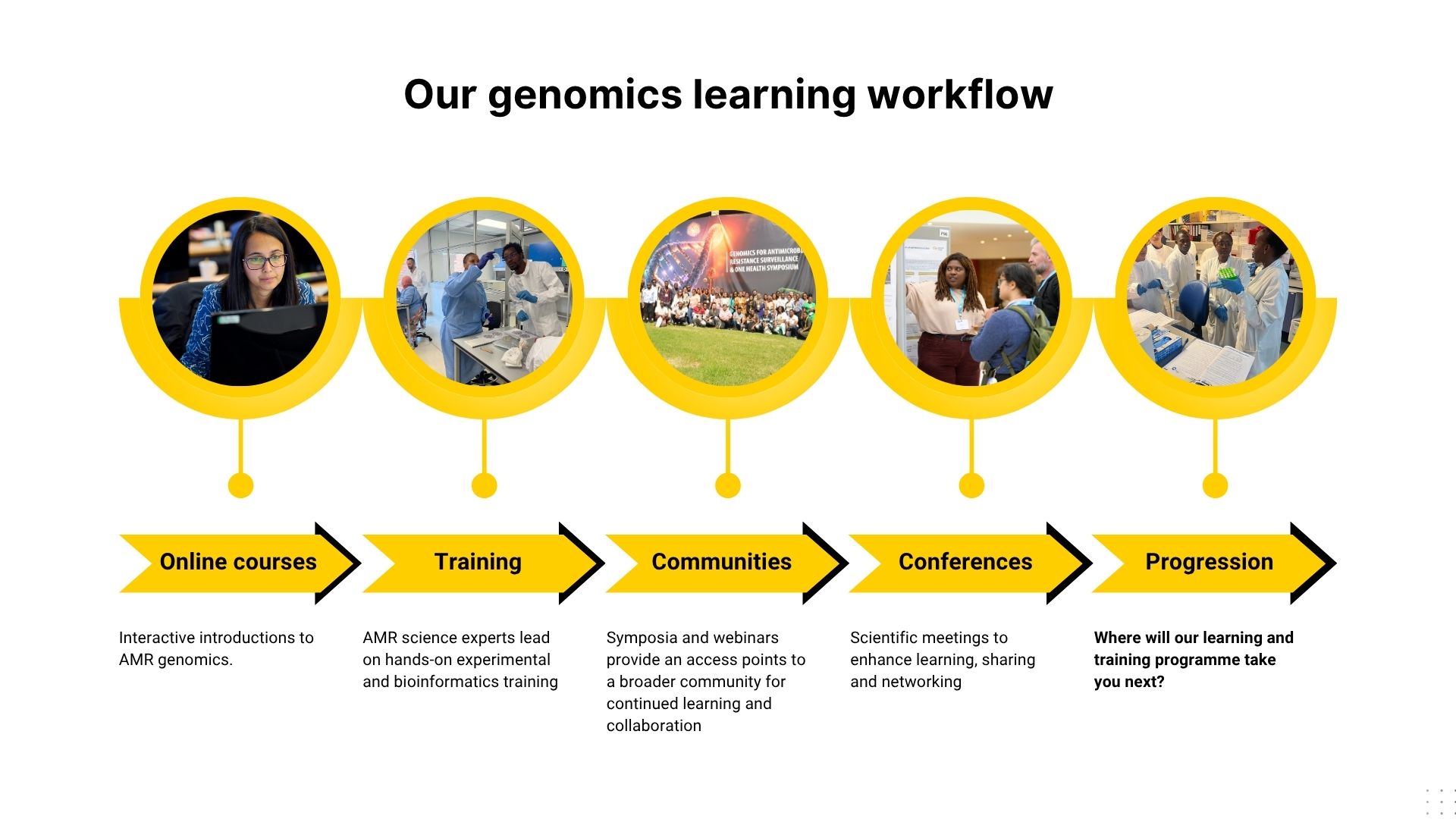
You can start with our free online course, Antimicrobial Databases and Genotype Prediction: Data Sharing and Analysis, launching in September 2025. This course covers essential skills in applying genomics tools, interpreting genotypic and phenotypic data, and following best practices for data sharing. Participants receive a certificate and CPD credits from the Royal College of Pathologists.
If you are looking for deeper, hands-on experience, our immersive in-person courses offer multi-format training in the end-to-end process for AMR detection from microbiological techniques, sequencing to bioinformatics workflows and data interpretation. The next one will be held in South Africa in March 2026.
Bringing it all together, we will be hosting our 2026 Antimicrobial Resistance – Genomes, Big Data and Emerging Technologies conference at the Wellcome Genome Campus, UK. This meeting offers both in-person and virtual participation, with bursaries available to ensure no-one is left behind. It’s a space for knowledge exchange, collaboration, and global visibility of AMR genomics work.
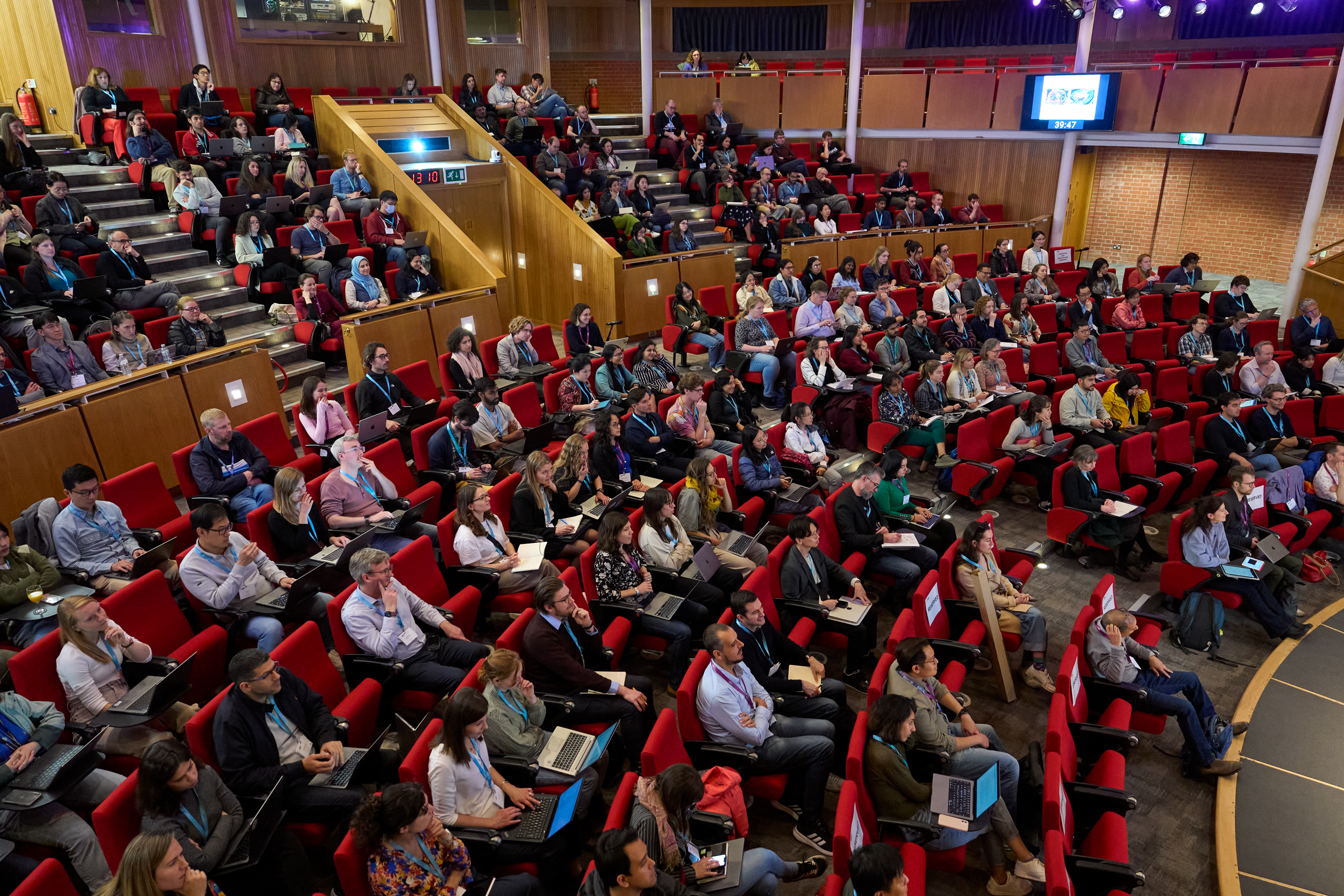
What’s next? Be part of the future
We believe that progress is built on shared learning, knowledge exchange and networking. That’s why we’re inviting you to stay connected with our growing AMR training community.
Complete the form below to be the first to hear about AMR-specific learning and training opportunities with Connecting Science.
